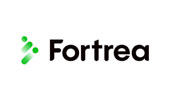
Unconscious Bias Learning Program
Challenge
As a global company, our cultural belief of “Respect People” is integral to our organization. We sought to increase understanding of unconscious biases, how they show up in the workplace, and ways to mitigate. Some challenges we had were to tailor the content to our specific industry and workday interactions, and to ensure it had global representation and can be interpreted globally.
Actions
Our Global Diversity & Inclusion team, in collaboration with the Global Learning team, developed an innovative and engaging training program designed to foster a more inclusive workplace. This program features a blend of video, text, and interactive content, ensuring a comprehensive learning experience for all users.
One of the standout features of this program is the unique approach to knowledge assessment. Instead of a traditional test, we have created a virtual game that allows users to practice what they have learned in a fun way. This game includes various scenarios that highlight different types of biases, helping users to recognize and address them in real-life situations.
To ensure the content is relevant and relatable to a global audience, we incorporated examples that reflect a diverse range of accents, names, departments, roles, genders, and more. This diversity in examples ensures that all users can see themselves represented in the content.
We also conducted a focus group with diverse reviewers from different parts of the business. Their feedback was invaluable in customizing the content to better meet the needs of our workforce. This collaborative approach has helped us to create a training program that is not only informative but also relevant.
To promote the course, we engaged multiple stakeholders, including senior leaders, the Human Resources team, the Corporate Communications team, and others. Their support was crucial in encouraging participation across the organization.
By providing our employees with the tools and knowledge they need to recognize and address biases, we are taking a significant step towards creating a more inclusive and equitable workplace.
Outcomes
The course received an NPS score of 74 within the first 2 months of launching. Survey questions on learning experience, applicability, and content interactivity were consistently 95%. Due to the positive feedback, we are seeking to expand our educational opportunities to other inclusion topics.
Contact
Cassandra Kennedy